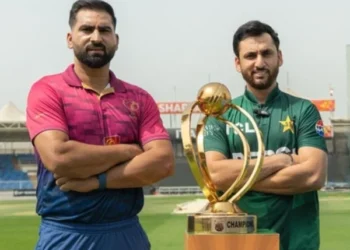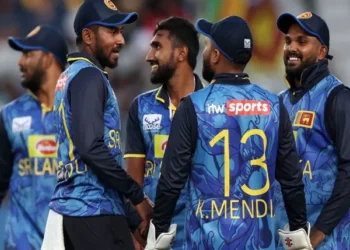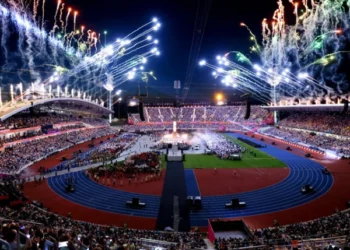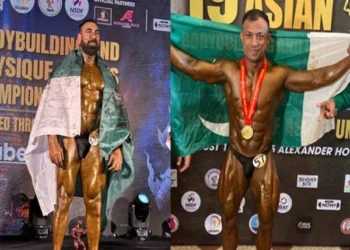The cricketing world is once again witnessing high drama ahead of the Asia Cup 2025, as political rhetoric, selection debates, and boycott threats dominate headlines. While cricket fans across South Asia eagerly anticipate the high-voltage clash between Pakistan and India, scheduled for September 14, 2025, in Dubai, uncertainty continues to loom over India’s participation in the match.
On one side, the Board of Control for Cricket in India (BCCI) is preparing to announce its squad for the Asia Cup. On the other, political circles and former cricketers in India are fueling calls to boycott the match against Pakistan, creating an atmosphere of confusion and speculation.
Indian Boycott Threat: A Familiar Controversy
Calls for India to boycott Pakistan in major tournaments are not new. In fact, such demands have become a recurring theme in the last decade whenever the two arch-rivals are scheduled to meet on the cricket field.
Former cricketer-turned-politician Kedar Jadhav recently stoked controversy by urging the Indian team to avoid playing Pakistan at any cost. He went as far as claiming:
“Our team should not compete with the Green Shirts under any circumstances. I claim that this match will not happen.”
Jadhav’s statement added fuel to an already tense situation, with political groups and television debates amplifying the narrative that India should boycott matches against Pakistan. The pressure on the BCCI continues to mount as influential political voices back the idea of withdrawal.
Double Standards: India’s Confusing Stance
The issue has been described as a ‘double game’ by cricket analysts and fans alike. On one hand, the BCCI has already secured permission from the Indian government to participate in the Asia Cup, including matches against Pakistan. On the other, some political figures are publicly opposing the team’s participation, creating mixed signals.
This contradictory stance has caused confusion among fans, players, and international cricket observers. Many see it as a reflection of India’s long-standing politicization of cricketing ties with Pakistan.
Interestingly, just a few months ago, India pulled out of a high-profile exhibition game against the Pakistan Champions during the World Championship of Legends, citing “political sensitivities.” Now, despite obtaining clearance for the Asia Cup, public rhetoric is once again casting doubts on the much-anticipated Pakistan–India clash.
Squad Selection: Debates and Uncertainty
While political debates rage on, the focus within the cricketing fraternity is also on India’s squad selection for Asia Cup 2025. The BCCI selection committee is expected to make tough calls, balancing form, fitness, and strategy.
Opening Combination Dilemma
- Shubman Gill, considered one of India’s most promising batsmen, faces uncertainty over his selection. Despite his consistent performances in the past, selectors are reportedly considering an alternative opening pair.
- The names of Abhishek Sharma and Sanju Samson are being strongly discussed as potential openers, suggesting that the committee is experimenting with aggressive top-order options.
Sacrifice for the Test Captain
Reports suggest that if Yashasvi Jaiswal, currently seen as the future of Indian Test cricket, is selected in the Asia Cup squad, he may have to compromise his batting role to accommodate other players. This indicates the selection conundrum that India faces—balancing young talent with experienced performers.
Fast Bowling Concerns
- Mohammad Siraj and Mohammad Shami, both key pacers, are under the radar but face selection challenges due to form and fitness considerations.
- Despite recurring fitness issues, Jasprit Bumrah is expected to make the cut, given his match-winning ability and leadership of the Indian pace attack.
The selectors are under pressure to finalize a squad that can not only perform in the Asia Cup but also serve as a testing ground for the ICC Champions Trophy 2025.
Asia Cup 2025: Tournament Overview
The Asia Cup 2025 will be staged in the United Arab Emirates (UAE) from September 9 to September 28. It will bring together six major Asian cricketing nations:
- Pakistan
- India
- Sri Lanka
- Bangladesh
- Afghanistan
- Nepal (qualifier)
The highlight of the group stage remains the Pakistan vs. India clash on September 14 in Dubai, an encounter that has historically drawn massive global viewership, surpassing even ICC events.
Given the hype surrounding Indo-Pak contests, any uncertainty over the match’s status generates frustration among fans and broadcasters alike.
Political Pressure on the BCCI
The BCCI, the world’s most powerful cricket board, often finds itself balancing political directives with international cricket commitments. While the board has confirmed participation in the Asia Cup, political lobbying continues to push for a boycott of Pakistan matches.
This pressure stems from long-standing political tensions between the two nations, with cricket often becoming a proxy battleground for broader diplomatic disputes.
Cricket experts argue that politicizing sports damages the spirit of the game, which historically has been seen as a bridge between hostile nations. Many fans, including those in India, are calling for the BCCI to prioritize cricket over politics and allow players to compete without external interference.
The Pakistan–India Cricket Rivalry
The Pakistan–India rivalry is arguably the most intense in world cricket. Matches between the two sides are not just sporting events but are treated as emotional, high-stakes encounters that capture the attention of millions worldwide.
- The last major ODI meeting between the two teams occurred during the 2023 Cricket World Cup, where India won in front of a packed crowd in Ahmedabad.
- Pakistan, however, holds the upper hand in overall Asia Cup encounters, making the upcoming clash even more significant.
Given this history, any suggestion of boycott is seen by fans as a betrayal of cricket tradition and spectator expectations.
Fan Reactions: Frustration and Disappointment
The ongoing uncertainty has triggered a storm on social media platforms. Hashtags demanding clarity on India’s participation in the Pakistan match have trended across Twitter (X) and Instagram.
- Indian fans have expressed disappointment at the idea of mixing politics with cricket, calling it a “disservice to the sport.”
- Pakistani fans, on the other hand, accuse India of playing double standards by agreeing to participate in the tournament while simultaneously threatening boycotts.
Broadcasters and sponsors, who invest heavily in Indo-Pak encounters due to their massive ratings, have also urged the BCCI to confirm its stance quickly.
Broader Implications for Asian Cricket
The controversy has far-reaching consequences for Asian cricket as a whole. The Asian Cricket Council (ACC), chaired by India in previous cycles, has worked hard to promote cricketing unity in the region. However, repeated threats of boycotts by India cast doubts on the credibility of ACC tournaments.
If India were to pull out of the Pakistan match, it could cause:
- Financial losses for broadcasters and sponsors.
- Reputational damage for the Asia Cup as a premier continental tournament.
- A potential diplomatic standoff within the ACC, as Pakistan and other members push back against India’s influence.
Conclusion: Cricket or Politics?
As the countdown to the Asia Cup 2025 continues, the cricketing world waits for clarity on India’s final squad and its stance on the Pakistan match. The controversy highlights the ongoing tug-of-war between sportsmanship and politics in the subcontinent.
While players and fans long for a competitive, fair tournament, political rhetoric threatens to overshadow the spirit of cricket.
For now, one thing is certain—the Pakistan vs. India match on September 14 in Dubai remains the most anticipated fixture of the tournament, and its fate will be a decisive moment for the future of Indo-Pak cricketing ties.

























